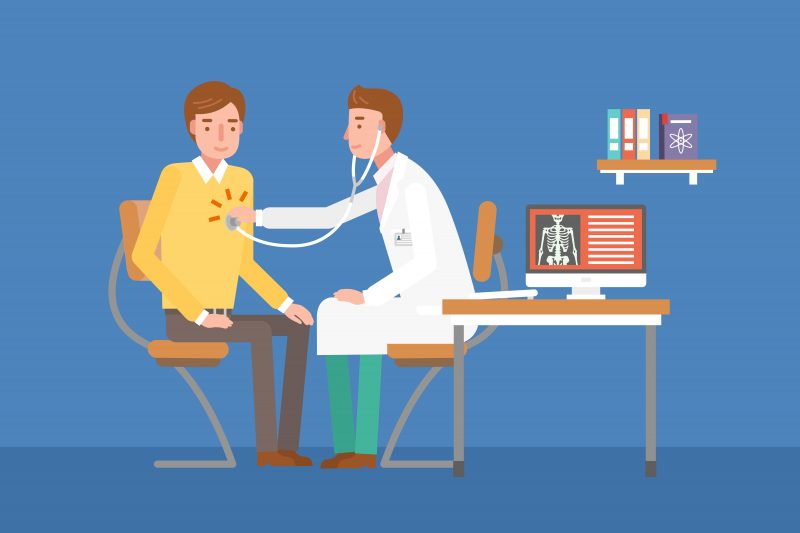There’s a medical term called hypochondria that applies to many people in some degree. Hypochondria refers to a person who hears about an illness, and then they believe they have it. It’s an anxiety disorder that varies in severity.
Some people feel sick at the slightest mention of the flu going around. Others ignore the flu, but if they hear about a West Nile virus outbreak, they believe they’re in for it!
No matter what version of hypochondriac you are, it can feel disconcerting to not know how you’re doing healthwise. The good news is, your health is in your hands! If you’re worried about any aspect of your health, you can get a checkup and rest assured that you’re in good hands, whether you’re sick or not.
For your general health, there are a few things you can do to stay on top of it. With a few screenings and preparedness tips, you’ll be ready for a number of health disasters!
-
Get Your Colon Checked
Even if you get your regular checkup every year like clockwork, you might have never had your colon checked. It’s not something that comes up in a routine examination, but it’s often the root of a few problems including feeling gassy, upset stomach, or an indication of more serious issues.
For example, did you know that three million people in the United States have a rare illness called Celiac disease? It’s an aversion to gluten that makes their colon and intestines swell, causing gas, diarrhea, and other gastrointestinal issues. Getting your colon checked is the only way to know for sure if you have it, and it could prevent a lot of discomfort in the future!
Additionally, there are probably a few facts about colon cancer that you don’t know. A colonoscopy is the only way to screen for colorectal cancer. More than 140,000 people are diagnosed with colorectal cancer every year, but it can be cured if it’s caught early. If you’re over the age of 50, you should get a colonoscopy at least once every five-ten years. However, if you’re concerned, feel free to start testing earlier!
-
Know Your Genetic Risks
There’s a lot that your genes can tell you about your likelihood for getting sick or passing a disease on to your children. Genetic testing specifically looks at the likelihood that a person will pass a gene on when they reproduce.
It also tests for carriers, those who have the gene mutation but don’t know it. Some parents can carry the gene for things like cystic fibrosis without ever having symptoms themselves.
DNA testing can also be used to look at factors in your genes that could increase your risk for certain disease. For example, if your family has a history of obesity, your gene testing could show your likelihood for the same problem.
To know for sure what your genes have to say, get tested. Do DNA testing in NY to get the highest quality results. If you don’t live there, consider a mail-in test.
-
Know Emergency Room Wait Times
Emergency room doors are open 24/7/365 because nobody knows exactly when a disaster will strike. Unfortunately, help isn’t always immediately available at these locations because wait times are too high. This can be caused either by an influx of patients or too few hospital personnel.
Research emergency room services in your area and find out which have the best wait times and reviews. That way, when an emergency does strike, you’ll know exactly where to go for the fastest, highest quality care.
You can’t prevent every illness or injury, but you can relieve the hurt by being prepared. Who knows? Your mild hypochondria could save your life one day!
